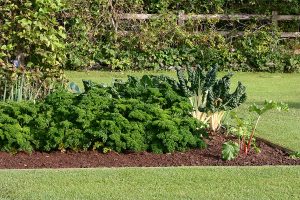 With the last spring frost likely behind us, now’s the time to realize your dream of growing your own vegetables. Starting a vegetable garden from scratch can be a great deal of work, but the results make the effort worthwhile. Whether you’re new to gardening or a self-proclaimed professional, these steps are crucial to fostering a healthy vegetable garden.
With the last spring frost likely behind us, now’s the time to realize your dream of growing your own vegetables. Starting a vegetable garden from scratch can be a great deal of work, but the results make the effort worthwhile. Whether you’re new to gardening or a self-proclaimed professional, these steps are crucial to fostering a healthy vegetable garden.
1. Pick the Right Location for Your Garden Bed
It’s essential to pick an ideal location for your vegetable garden, as a lackluster location can result in lousy or spoiled vegetables. Some characteristics for the perfect spot should include:
- Sunshine: Most vegetables require 6 to 8 hours of sunlight daily.
- Nutrient-Rich Soil: Planting your garden in nutrient-rich soil helps feed your vegetables.
- Drainage: If drainage in your soil is poor, excessive moisture can rot the roots.
You should also avoid areas susceptible to strong winds or that experience a lot of foot traffic.
2. Group Vegetables According to Their Watering Requirements
When planting your vegetables in rows, ensure they’re grouped according to how much water they need. It’s best to keep the plants that don’t require a lot of water further from the water source to make it easier on yourself. It will also save water, as you won’t need to cover a lot of ground at once.
3. Weed Your Vegetable Garden Regularly
You should look out for weeds. They can seem like minor nuisances at first, but weeds can quickly invade your garden, starving your vegetables of light and robbing the soil of phosphorus, nitrogen, and potassium – essential nutrients for plant growth.
4. Mulch Your Vegetable Garden
Just as you mulch the decorative beds on your landscape, so too should you mulch your vegetable garden. Mulch deters weeds and can help the soil retain water. Also, mulch will gradually replenish the soil with nutrients. These materials are adequate forms of mulch: newspaper, straw, and wood chips.
5. Don’t Overwater Your Vegetables
A common misconception about vegetables is that they must be constantly watered, but overwatering your garden can lead to root rot, mold, and fungus. Keep an eye on the weather forecast and avoid watering vegetables before predicted rainfall. The best solution to overwatering your garden is to invest in drip irrigation.
By following these steps to fostering a healthy vegetable garden, you’ll experience a heavy rotation of tomatoes, peppers, and cucumbers all summer long. Since gardening is a labor-intensive task, you may need the assistance of professionals to handle the rest of your landscaping. At Dolan Landscaping, we can maintain your landscape and clear out an ideal location for you to make a garden, and we can help you implement hardscapes that highlight your treasured garden. Contact us if you require assistance with your property while you tend to your vegetable garden.